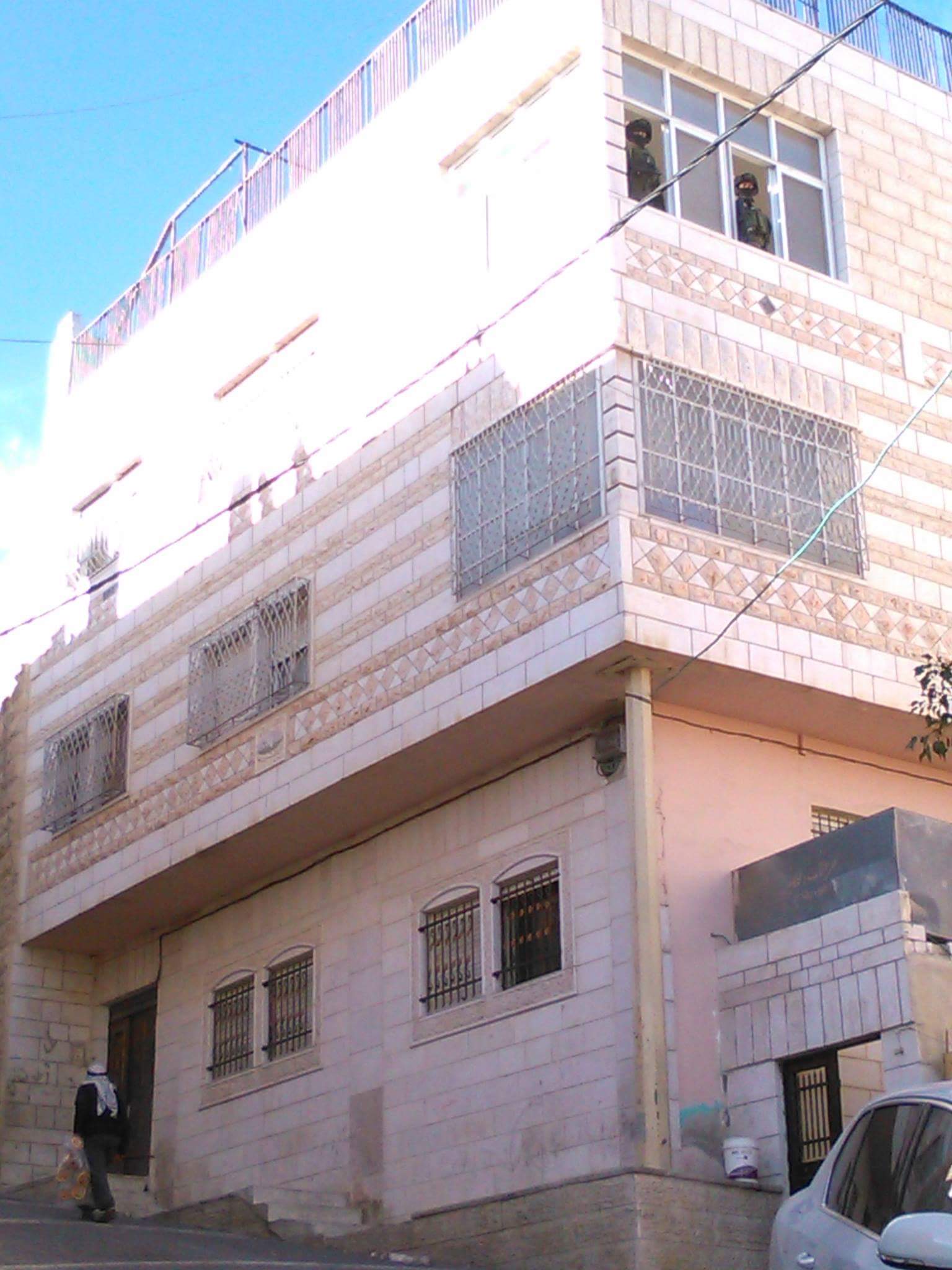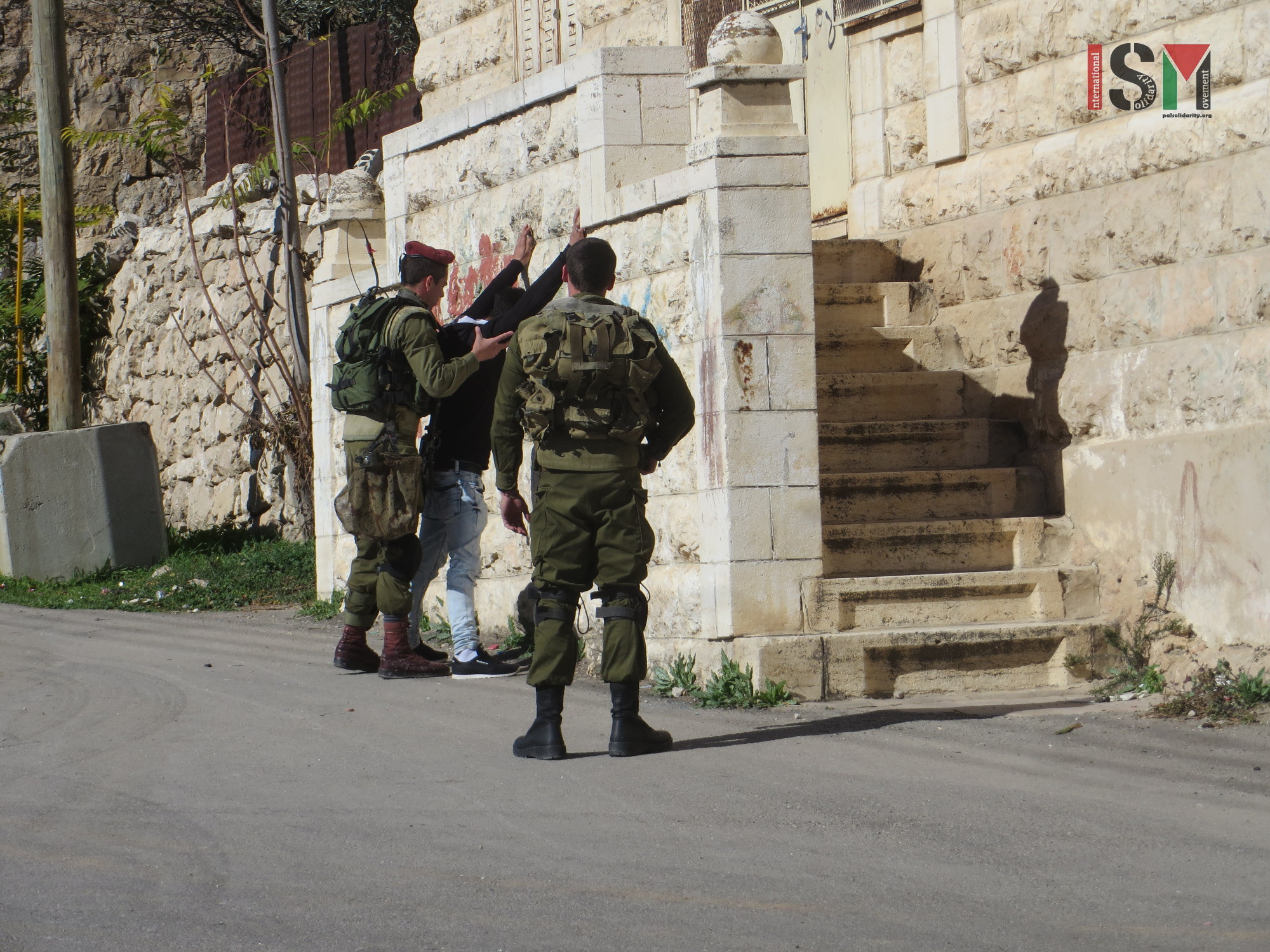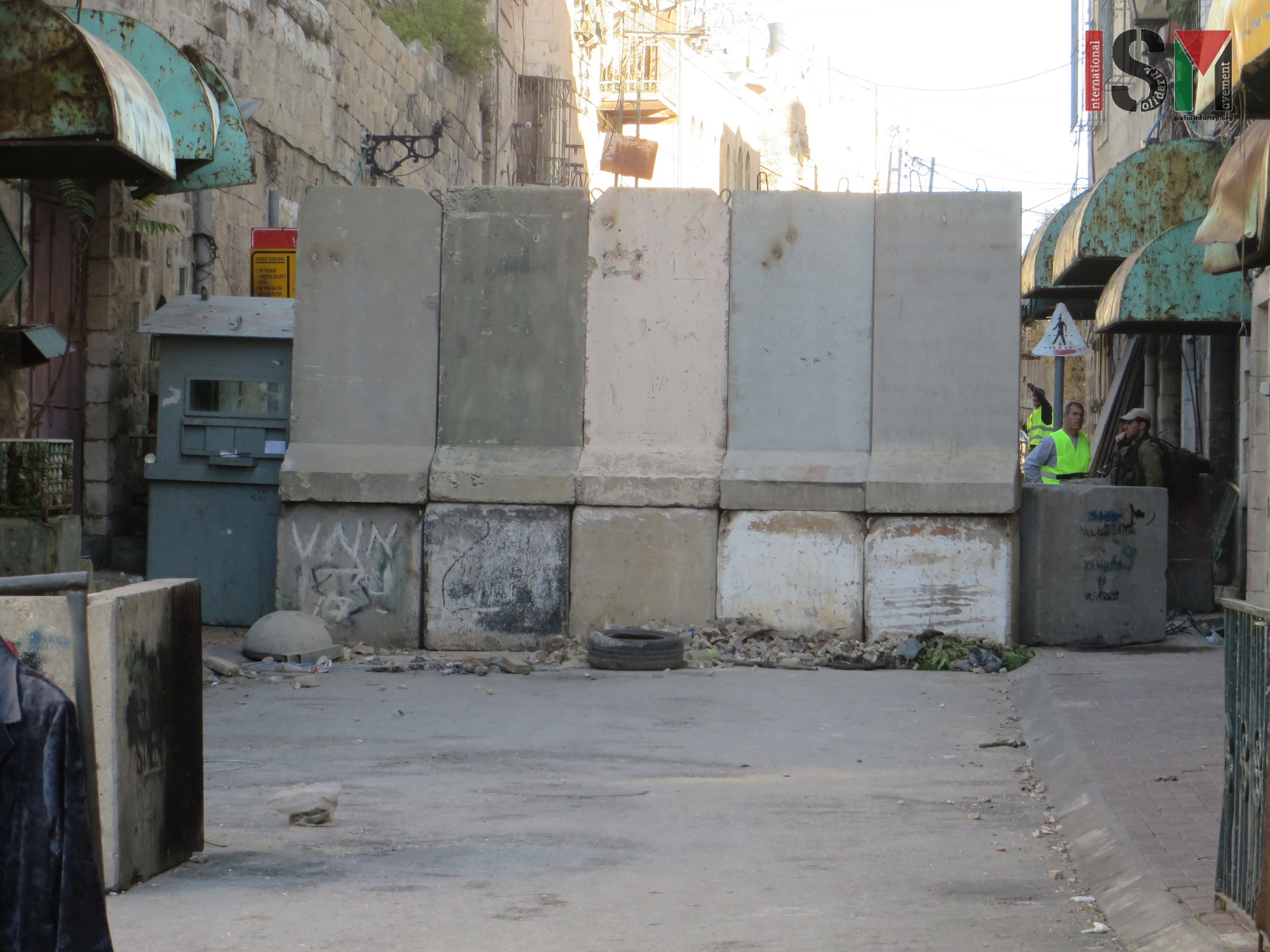Tag: Hebron
-
Israeli soldiers occupy Palestinian house to set up military base
December 10th, 2015 | International Solidarity Movement, al Khalil team | al Khalil, occupied Palestine For the last 15 days the family of Abu Shykri Al-Atrarshi have had no access to the top two floors of their house, which was illegally taken over by the Israeli occupation forces and where they set up a military…
-
More humiliating body-searches in occupied al-Khalil (Hebron)
9th December 2015 | International Solidarity Movement, Khalil Team | Al-Khalil, occupied Palestine On Tuesday and Wednesday, 8th and 9th December 2015, Israeli forces bag- and body-searched virtually every male and female adult walking through or past a checkpoint in the Jaber mountain neighbourhood in occupied al-Khalil (Hebron). In the afternoon on Tuesday, Israeli forces…
-
Closure of major checkpoint in occupied al-Khalil (Hebron)
8th December 2015 | International Solidarity Movement, Khalil Team | Al-Khalil, occupied Palestine Israeli forces on Monday, 7th December 2015, have closed Shuhada checkpoint in occupied al-Khalil (Hebron) for an indefinite period of time. This checkpoint marks the border between the H2 area of al-Khalil, under full Israeli control, and the H1 area, supposedly under…



